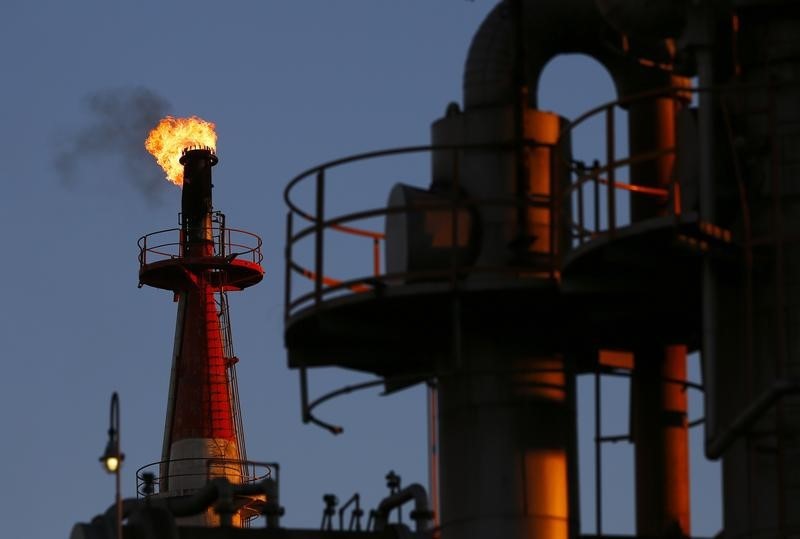(Repeats August 3 story with no changes to text, adds
subscribers)
Aug 3 (Reuters) - U.N. sanctions experts have accused
British company Soma Oil and Gas of making large payments to
Somalia's oil ministry that created a "serious conflict of
interest," some of which appeared to have been used to pay off
senior officials.
In a report to a U.N. Security Council committee, the
experts said Soma paid nearly $600,000 as part of efforts to
protect and expand an energy exploration contract it signed with
the ministry in 2013.
According to a confidential report compiled by the experts
on the U.N. Somalia and Eritrea Monitoring Group, which was
reviewed by Reuters, Soma also paid $495,000 to a lawyer who was
advising the Somali government when it was negotiating a
contract with the company. The eight-member panel of
investigators that compiled the 28-page report monitors
compliance with U.N. sanctions.
The allegations outlined in the report, which has been
submitted to the U.N. Security Council's Somalia/Eritrea
sanctions committee, triggered an investigation into Soma by
Britain's Serious Fraud Office (SFO), according to people
familiar with the situation.
The SFO has confirmed that it opened the inquiry but it has
not outlined the allegations against Soma Oil and Gas. The
company's London headquarters were searched last week.
ID:nL5N10C040
The U.N. Somalia and Eritrea Monitoring Group said the
evidence it collected demonstrated that the Soma payments
"created a serious conflict of interest, in a number of cases
appearing to fund systematic payoffs to senior ministerial
officials".
In its response to Reuters, Soma denied any wrongdoing,
saying the contract to the company was awarded by Somalia's
cabinet and not members of the petroleum ministry and as such
there was no conflict of interest.
Somalia's Petroleum Minister Mohamed Mukhtar Ibrahim
declined to comment.
Somalia's petroleum ministry declined to comment as the
ministry staff has not yet seen the report, according to Ibrahim
Hussein, the ministry's head of external relations.
According to the report, Soma Chief Executive Robert
Sheppard told the Monitoring Group that the payments were part
of a "Capacity Building Agreement" requested by the Somali
government. This aimed to help the ministry hire local and
foreign experts to build up geology and other oil industry
expertise, something the country lacks after decades of conflict
destroyed its state institutions.
The U.N. monitors described the capacity building programme
as "likely part of a quid pro quo arrangement", whereby the
ministry would protect the Soma contract from any negative
consequences when a panel chaired by the Somali finance ministry
began conducting a review of all its contracts.
The monitors allege these "quid pro quo" arrangements
"undermine Somali public institutions through corruption".
Soma told Reuters in an emailed statement that the U.N
monitors "fundamentally misunderstood the nature, purpose and
destination of the payments made under the terms of the Capacity
Building Agreement", and said the company has been transparent
about the programme.
Soma is chaired by Lord Michael Howard, who led the British
Conservative Party when it was in opposition and was succeeded
in 2005 by David Cameron, who is now prime minister. The company
said the SFO had told it that "no suspicion whatsoever attaches
to Lord Howard".
Soma secured an exclusive contract in 2013 to conduct
seismic surveys on 12 offshore oil and gas blocks, totalling
60,000 square km. The contract awarded Soma the right
subsequently to pick blocks it wanted to exploit.
The payments to Somalia's oil ministry totalled $490,000
over a year, according to the report. It said most of that money
was earmarked for salaries, with about $40,000 put towards
office supplies.
The report said that in December 2014 Soma transferred an
extra $100,000 to the Somali oil ministry to construct a "data
room" in the capital Mogadishu, but by June there had been no
progress on its construction and oil ministry officials either
could not account for the money or did not respond to requests
for information.
"All payments pursuant to the CBA and relating to the Data
Room were made directly to the Somali Government following
appropriate due diligence and the implementation of various
legal safeguards," Soma said, adding that it had sought
independent legal advice.
"Soma has never made payments to individual government
officials," the company said.
U.N. monitors allege that at least six officials who drew
Somali government salaries were also on Soma's capacity building
payroll, which would in some cases have almost trebled their
salaries.
The report said those officials included director general of
the oil ministry, Farah Abdi Hassan, and his deputy, Jabril
Mohamoud Geeddi. Neither official replied to several Reuters
requests for comment.
The monitors also queried why "despite the apparent conflict
of interest", Soma had paid nearly half a million dollars to J.
Jay Park, a Canadian lawyer who was acting as an official legal
adviser to the Somali government when it was negotiating its
contract with the British company.
According to the report, Soma confirmed to the monitors that
it had paid Park's firm, Petroleum Regimes Advisory (PRA), but
said it did so because the Somali government was unable to cover
its own legal fees.
"Soma agreed to the Somali Government's request to pay these
fees and did so after taking legal advice which confirmed that
it was appropriate to do so," Soma said in its statement to
Reuters.
Jay Park told Reuters, "We respectfully differ with the
suggestion of a conflict of interest", adding that the Somali
government requested Soma to pay the legal fees only after the
negotiations ended and an agreement had been signed.
(Editing by Toni Reinhold)
